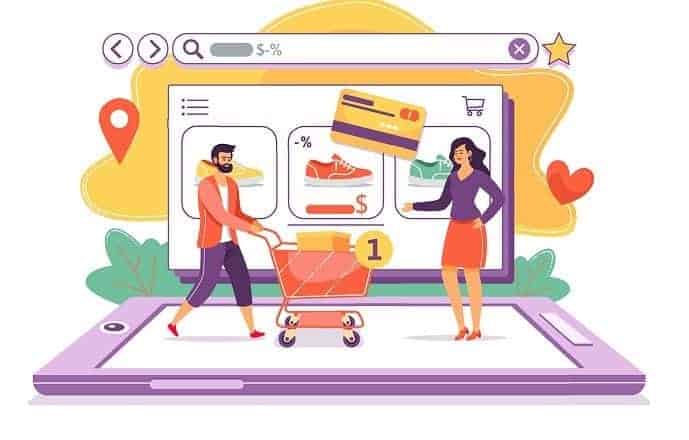There are approximately 7.8 billion people globally, and more than a quarter of them—26.28%, to be precise—are into online shopping. This makes the market for e-commerce sufficiently large, and online brands need to be conscious of that.
There are as many perceptions, beliefs, and misconceptions about online shopping as buyers. It’s impossible to change the minds of such a huge lot, but it helps to know what myths have blocked your route to success.
What buyers think of e-commerce affects your business directly because:
- 31% of them shop every month
- 24% of them shop every two weeks
- 20% of them shop every week
E-commerce is a large part of buyers’ lives, and the slightest misleading notion can deter them from trusting your brand. Here are some myths that you need to know and work on dispelling.
Identity Theft is a Risk
Shoppers often misconstrue online shopping as a trap that leads to identity theft. This is not a baseless assumption either, since 14.4 million online customers were victims of identity theft in 2019. With 33 percent of online users in the US having experienced identity theft first-hand, it’s hard to erase such doubts from their minds.
However, you can work around this by making the checkout process secure and payments more transparent. Issuing digital wallets relaxes customers when it comes to sharing financial information, since they know sensitive information is privacy-protected. If you’re running a smaller business, make payment options more flexible by allowing buyers to pay once the shipment has been delivered.
Shopping From Stores is More Convenient
We know it’ll be a long time before public marketplaces all open again. The coronavirus is still raging on, and there’s news about it mutating into a more deadly disease. The vaccine trials have begun, but we’re far from building mass immunity against this virus. This is why brick-and-mortar businesses will be out of order for a while, and shoppers need an alternative.
People who have always shopped in stores have a hard time transitioning to online shopping. Granted, there are many hindrances such as the inability to see the purchase, trying on sizes to find the best fit, seeing how a dress looks on you or estimating the size of interior décor objects as they would appear in your home.
But online shopping has certainly made shopping time- and cost-efficient, as confirmed by 43% of buyers. You can cash in on this mindset and alleviate some concerns by marketing your products right. You’re selling an experience, so make sure it’s worth their while (and money).

Going Broke Fast
The popularization of retail therapy has led people to think that shopping online is the equivalent of splurging without accountability. Some have even started fearing clicking on objects they see online for the fear that they’ll spend uncontrollably and empty their accounts. The fear of impulsivity drives buyers away from e-commerce platforms. And there’s an underlying belief that brands are out to steal their money by luring them into purchase after purchase.
As an online seller, the ball is in your court. You can choose to market your brand however you want. If you understand and sympathize with the buyer’s sentiment, you can introduce gestures of goodwill by reminding your buyers to check their budget before purchasing.
One way to do this is by asking buyers to input a budget amount before selecting items. This will warn them when they cross their limit, and will ensure that they don’t overspend. There is the risk of reduced revenues, but it offers a much bigger gain in the form of retaining loyal customers in the long run.
If you’re looking for smart e-commerce solutions for your website, come to us. We can create Ecommerce website for your brand and increase its visibility. We also help brands build ecommerce website online by syncing you to mega marketplaces such as eBay, Amazon, Shopee, and Lazada. Reap all the benefits you can get by becoming an affiliate today.

